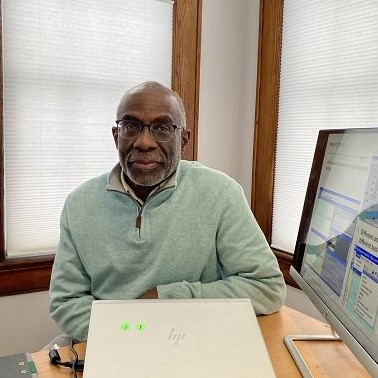Speaker interview: Eric Bennett, Netzsch Instruments
 Our next interview
is with Eric Bennett, Rheology Sales Manager: West-MidAtlantic for Netzsch Instruments.
Our next interview
is with Eric Bennett, Rheology Sales Manager: West-MidAtlantic for Netzsch Instruments.
Eric is a Regional Sales Manager and Rheology Technical Specialist with the Netzsch Analyzing & Testing division of the Netzsch Group, a global manufacturer of scientific instruments and machinery. Netzsch Analyzing and Testing manufactures and supports instrumentation for material characterization in the fields of rheology, thermal analysis and thermo-physical properties, and fire testing. The key focus at Netzsch is to serve their customers, who are in a wide range of industries, using the technology and knowledge base of the applications specialists to identifying solutions for making their operations more efficient. Accurate material characterization can lead to more rapid product development, improved quality, and optimization of processes.
How do you see the industry developing and growing in the next three-to-five years?
Plastics is deeply ingrained in modern life and will continue to be so, their use increasing as lesser-developed economies transition to serve the growing middle class increasing demand for products that improve the quality of life. Growth in the industry is inevitable; it is a matter of in which sectors. There is still opportunity for plastics as a replacement for other materials like glass and metals, and with the development of higher performing polymers, there is forecasted growth in electronics, aerospace and the automotive industries. There is also growth in the bioplastics industry and as the cost of feedstock gets closer to parity with traditional petro-based polymers, consumers concerns about plastics waste and single use will steer manufacturers into more sustainable pathways.
What do you consider the biggest challenges facing the industry at the moment?
Plastics waste is a major issue, one that the industry has been slow in addressing. Society’s awareness of the environmental harm caused by plastics waste is at an all-time high, and there is increasing local level legislation that is moving towards the elimination of single use plastics. Plastics recycling needs to be more impactful, but is stymied by a number of structural and economic factors. Collection of consumer plastics waste is still not a streamlined process, and the technology (chemical recycling) for processing higher-grade plastics waste is still somewhat in its infancy.
In your view, what has been the most exciting development in industry in the last couple of years? And why?
I find it difficult to point to a single development as the most exciting, but there are a few that would certainly qualify as industry changing. Improved availability and performance of bio-based polymers is definitely an exciting development as this is a major step towards reducing plastics pollution. There is now an impressive range of bio-based polymers; including bacteria-based, starch- based, and cellulose-based. The growing acceptance of additive manufacturing is an exciting development. 3D printing is leading to reducing operating time and cost for complex components. Another development that has made some incursions in the plastics industry is IOT, the “internet of things.” While not specific to the plastics industry, the industrial internet allows for far greater efficiency and thus more rapid growth through interconnection of production facilities and sites and employing advanced analytics from data gathering from all stages of production.
You will be speaking at AMI’s plastics industry expos in the US in November; could you give us a preview on what you will be talking about?
Rheology, the study of flow and deformation, is a useful tool in the industry for improving the development and performance of polymers and the processing of plastics. My talk will focus on rheological techniques that are applicable to the polymer industry, and how to use the data in quality control, product development, and process optimization. On some level, rheology is viewed as too complex a subject for a production environment, so an objective of the talk is to promote its use as a problem-solving tool.
Eric will be presenting a paper on 'Capillary and rotational rheometers: complementary techniques for measuring rheological properties' at the Polymer Testing World Expo Conference 2022.
